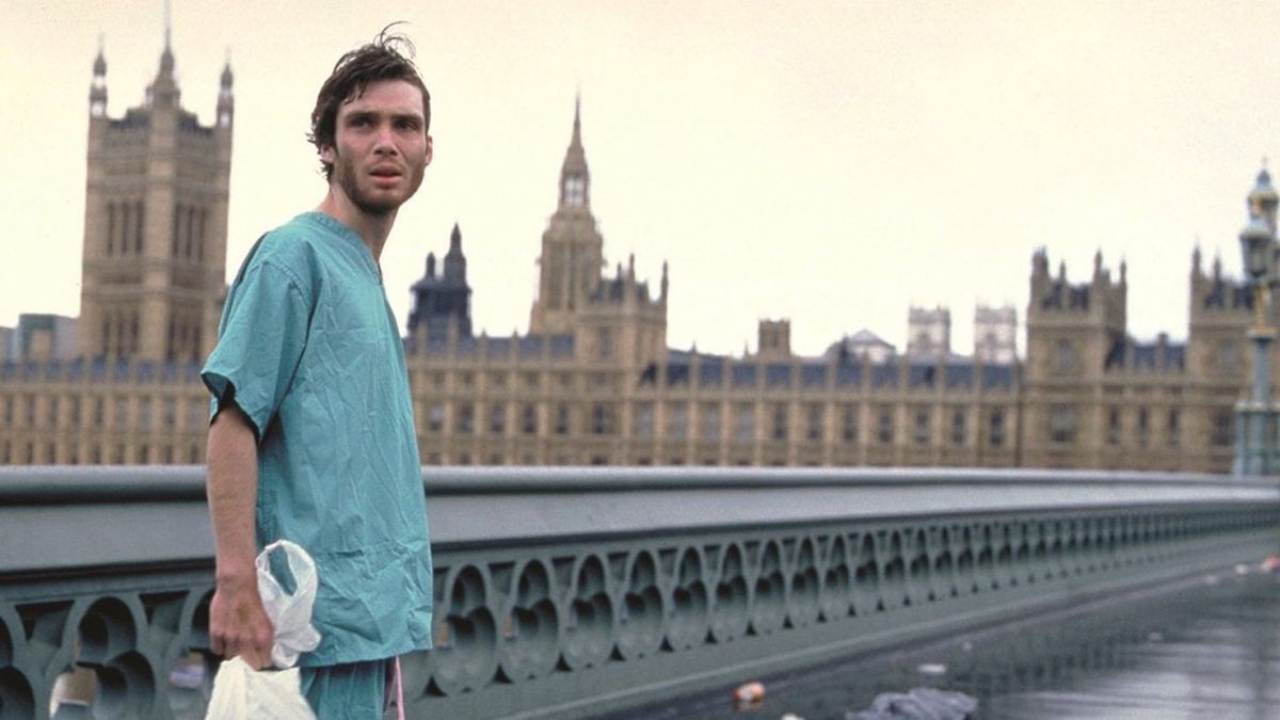Early on in Better Man, Michael Gracey's Robbie Williams biopic starring a CGI ape (not a monkey, as the marketing and memes claimed), a young Robbie Williams (played by the man himself) listens to his father (Steve Pemberton) discuss celebrity and what it takes to make it. "You either have "it"," explains the older Williams, a deadbeat wannabe comedian as he ruffles the young ape's hair, "-or you're nobody." While a crucial moment in the psyche of Williams, a normal biopic would've treated this moment as the obstacle for the hero to overcome, showing everyone that he's not a nobody, but Better Man makes this Williams's drive, his defining belief that (for better or worse) steers his entire career. Better Man is a story of someone desperately chasing the spotlight, doing whatever it takes to stay in it even as it completely eats him alive. Does Williams have "it", the inherent talent to succeed, or is he just desperate enough, just charming enough, to fake it and force his way there? The film largely leaves this up to you, but even when one strips away the fascinating quandary at the heart of the story, it is an undeniably entertaining experience.
Better Man is fascinating in that it's a biopic that largely does away with the "inspirational great man rises from nothing" narrative that makes up so much of the genre. Williams gets lucky again and again, impressing the right person at the right time, and he's often so desperate to stay in the spotlight that he's willing to do effectively anything. "Robbie" is the character, a mask that "Robert Williams" can hide behind in his pursuit of fame and fortune. It becomes increasingly clear that Robbie is both a stage persona and a means for Robert to bury his pain, demeaning himself for a cheap audience laugh. Be it turning a pratfall on stage into a comedic spot as a child or jokingly stealing a melon to hide the suicidal rage and grief at being fired from Take That, the boy band where he got his start, "Robbie" is Williams refusing to be genuine, a chance to turn his pain into a laugh and keep up the persona of the arrogant hotshot pretty boy. It even reflects in his art, as he chooses to make throwaway, impersonal pop in hopes of drawing the largest audience, ignoring that it's only when he gets genuine that he's truly able to live up to his own potential.
It's often said that musical numbers are characters singing to express the feelings that words simply could not. In Better Man, there's a similar sentiment, each song representing the moments where the "Robbie" persona melts away and he speaks how he really feels. From the jubilation of success in "Rock DJ" to the soaring love and crashing heartbreak of "She's The One", each track is a narrative unto itself, depicting the highs and lows of stardom. They're also incredibly well-directed, Gracey masterfully and creatively makes each song feel like witnessing a dream, larger than life and bursting with color and creativity. "Rock DJ" is a creative oner, cleverly playing into Take That's destructive tendencies through the people hurt and stolen from over the course of the ostensibly celebratory song, while "Let Me Entertain You" is an honest to god battle sequence, a literal slaying of demons that becomes so overwhelming and thunderous that Williams's final victory feels less like a triumph and more like just barely regaining your breath.
Of course, we have to talk about the singing chimpanzee in the room. "All my life," explains Williams at the start of the film. "I've always felt less evolved than other people." The ape is, effectively, a literal representation of that inferiority, that crushing desire to be liked that overwhelms all else. In Williams mind, he's nothing more than a singing monkey, a novelty act that people will get bored of if he doesn't do whatever it takes to keep their attention. The actual effects of the ape, painstakingly brought to life by WETA, are largely seamless, acting and moving alongside regular humans in a variety of environments without the effect ever being jarring. You never quite forget he's an ape, but the large, expressive face and matted fur makes Williams struggle that much more effecting. Of course, you can also see how excited the artists are to flex their creation, showcasing the ape from a child to a fully grown "man" in a variety of outfits inspired by the various looks of Williams careers. (Particular favorites are the skinless ape, an homage to Williams's inexplicably disturbing "Rock DJ" music video and an albino ape as representation of Williams bleaching hir hair.)


